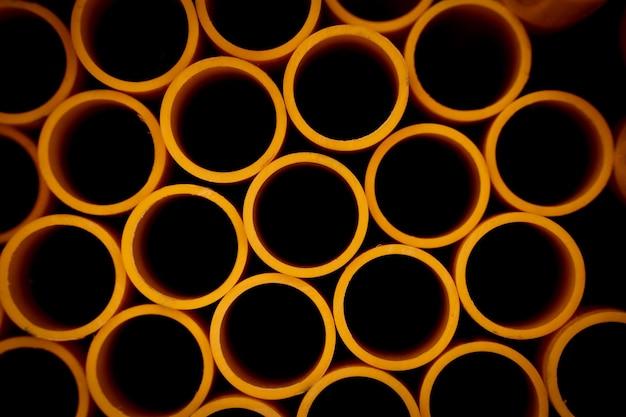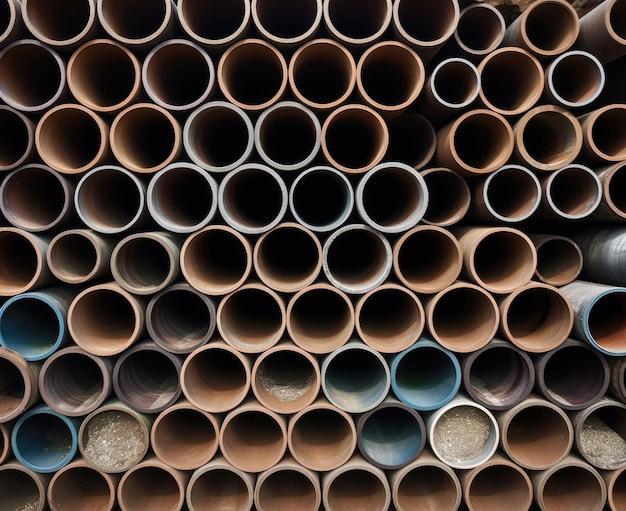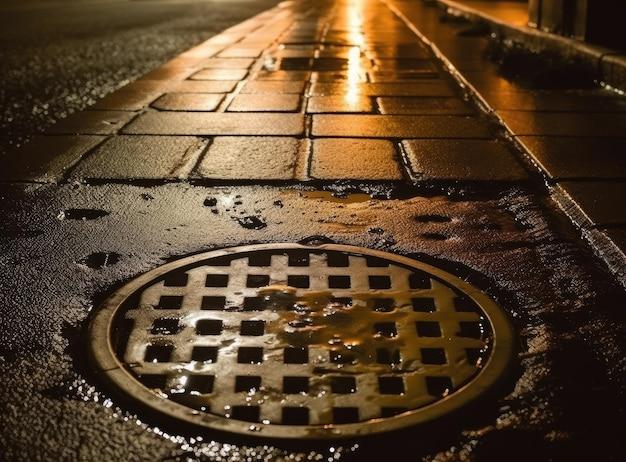Are you considering upgrading your home’s plumbing system? Maybe you’re experiencing low water pressure, rusty water, or unexpected pipe leaks. Repiping your house might be your best solution. The question is, does repiping your house add value to your home?
Before you start crunching numbers and opting for home improvements, it’s essential to understand the pros and cons. Homeowners often wonder if updating plumbing systems will increase their home value, and the answer can vary based on several factors.
If you’re thinking of repiping your home, factors such as house repiping cost calculator, repiping installation costs, and how often homes need to be repiped come into play. The important thing to note is, updated plumbing won’t always equate to a higher home value, but it can be a deciding factor for buyers.
In this post, we’ll dive into the essential details, the pros and cons, and the impact of repiping on your home’s value. So, whether you’re planning to sell in the future or just curious about the benefits of repiping, this post will cover all you need to know.
Does Repiping a House Add Value
Repiping a house is a significant investment that can raise a homeowner’s property value. A house’s plumbing system involves numerous pipes and fixtures that wear out over time. If a homeowner wishes to keep their property’s plumbing system in good condition and avoid expensive repairs, repiping is essential. But does repiping a house add to its value? The answer is yes, and here’s why.
Increased Water Pressure
Old and rusted pipes lower a house’s water pressure, causing inconvenience to residents and the potential for significant damage to the toilets, sinks, and other household appliances. Repiping enhances water pressure, resulting in more efficient and stable flow, which is not only convenient but also adds value to the house.
Improved Water Quality
Old pipes can leach toxic compounds into water, resulting in poor water quality and even health issues for residents. Repiping eliminates this threat and ensures that the water flowing throughout the house is free from harmful substances, making the house more attractive to buyers.
Enhanced Energy Efficiency
A house’s plumbing system is connected to its energy consumption, and old and rusted pipes can lead to energy inefficiency. Repiping not only ensures that the plumbing system operates efficiently, but it can also reduce energy consumption, which is a significant attraction for buyers.
No More Costly Repairs
Repiping is a major investment that can save a homeowner thousands of dollars in repairs and replacements for faulty pipes and appliances. By repiping a house, the homeowner eliminates the potential for costly plumbing repairs that can negatively impact the property’s value in the long run.
In conclusion, repiping a house is a significant investment that adds value to a property by improving the water pressure, water quality, energy efficiency of the house. Repiping is also an opportunity for homeowners to eliminate the potential for costly repairs and replacements, thereby saving thousands of dollars in the long run. Thus, repiping a house is undoubtedly a valuable investment that can increase a property’s value.
House Repiping Cost Calculator
If you’re considering repiping your house, you’re probably wondering how much it will cost you. The good news is, you can easily estimate your house repiping cost using a house repiping cost calculator.
What is a house repiping cost calculator
A house repiping cost calculator is an online tool that helps estimate the cost of repiping your house. It takes into account various factors such as the size of your house, the type of pipes you have, and the labor cost in your area.
How to use a house repiping cost calculator
To use a house repiping cost calculator, you need to enter some basic information about your house, such as the size of your house, the number of bathrooms, and the type of pipes you have. The calculator will then give you an estimated cost for repiping your house.
Factors that affect the cost of repiping your house
The cost of repiping your house depends on various factors such as the size of your house, the type of pipes you have, and the labor cost in your area. Repiping a larger house with more bathrooms will cost more than repiping a smaller house with fewer bathrooms. Similarly, if you have old or damaged pipes, it will cost more to replace them than if you have newer pipes.
Estimating the cost of repiping your house is important as it helps you to plan your budget properly. A house repiping cost calculator is a useful tool that can help you get an idea of how much you’ll need to spend on repiping your house. Remember, the cost of repiping your house may vary depending on various factors, so it’s always a good idea to get multiple quotes from different plumbers before making a final decision.
Is it worth it to repipe a house
If you’re thinking about repiping your house, you’re probably wondering if it’s worth the investment. The short answer is yes—it can add value to your home, make it safer, and save you money in the long run. Here’s why:
Improves water quality
Old, corroded pipes can leach chemicals and metals into your drinking water, which can be harmful to you and your family’s health. Repiping with modern materials like copper, PEX, or PVC can improve water quality and eliminate the risk of lead contamination.
Increases home value
Prospective buyers often shy away from homes with outdated or faulty plumbing. By repiping your house, you’re increasing its value and making it more appealing to potential buyers. Plus, you can advertise your home as having updated plumbing, which can be a major selling point.
Reduces maintenance costs
Old pipes are prone to leaks and can require frequent repairs. By repiping your house, you’re preventing future leaks and reducing maintenance costs associated with plumbing repairs. Plus, you’ll save money on water bills since newer piping materials are more efficient.
Adds peace of mind
Perhaps the most significant benefit of repiping your house is the peace of mind it can provide. Old pipes can burst or leak and cause significant damage to your home. By upgrading your plumbing, you’re taking steps to prevent future water damage and protect your investment.
In summary, repiping your house is undoubtedly worth the investment. It can improve water quality, increase home value, reduce maintenance costs, and provide peace of mind. If your home is more than 50 years old, or you’re experiencing frequent plumbing issues, consider investing in repiping.
How Often Do Homes Need to be Repiped
Repiping a house is a process that involves replacing all the old piping systems in the house with new ones. It is a significant investment that requires a considerable amount of time and money to complete. However, over time, pipes can become worn out, outdated, or even begin to leak. When this happens, it may be time to consider repiping your home.
Signs that Your Home Needs to be Repiped
The frequency at which home’s need to be repiped varies based on factors such as the quality of the piping, the age of the home, the water quality, and how often plumbing maintenance is performed. However, there are some common signs that homeowners can look for to determine if they need to repipe their home.
Discolored Water
If you notice discolored water coming out of your faucets, it could be a sign that your pipes are rusting and need replacement. The discoloration is caused by rust and sediment buildup inside the pipes.
Low Water Pressure
Low water pressure is often a sign of blockage or leaks in the pipes. If the issue persists even after cleaning the aerator, then it is likely that the pipes need to be replaced.
Unpleasant Odor
If your water has a distinct sulfuric smell or a metallic taste, then it is time to have a plumber inspect your pipes. These odors can be caused by corrosive chemicals that have built up within the pipes over time.
How Often Should You Repipe
The frequency at which homes need to be repiped varies depending on multiple factors. The average lifespan of a pipe can range from 20 to 50 years. However, the type of pipes used and the quality of installation play a huge role in determining the lifespan of the pipes.
For instance, galvanized pipes can last up to 50 years, while PVC pipes have an average lifespan of 25 years. Copper pipes can last for up to 70 years. Nevertheless, these estimates should not be taken as a general rule. Always consult with a plumbing professional to help predict when it is time to repipe your home.
Repiping a house can add value to your home by improving the water quality and eliminating leaks. Ignoring the signs of aging pipes or leaks can lead to significant water damage within your home. The frequency at which homes need to be repiped varies based on several factors, and it is essential to consult a plumbing expert when making such decisions. Remember, regular plumbing maintenance can extend the lifespan of your pipes and save you significant expenses in the long run.
How Much Does Repiping Installation Cost
Repiping installation cost can vary depending on several factors such as the size of your house, the number of plumbing fixtures, and the type of material you want to use. However, the average cost of repiping a house can range between $3,500 to $8,000.
Factors Affecting the Cost of Repiping Installation
Size of Your House
The larger the house, the more complex the plumbing system, and the higher the cost of repiping installation. A small house can cost less to re-pipe than a large house of the same age and style.
Number of Plumbing Fixtures
The more plumbing fixtures in a house, the higher the cost of repiping installation. Fixtures such as sinks, toilets, and showers need piping. A house with many plumbing fixtures will cost more to re-pipe than a house with fewer plumbing fixtures.
Type of Material Used
The type of material used for repiping will also have an impact on the total cost. Copper piping is more expensive than PEX piping. PEX (cross-linked polyethylene) is a more modern type of plumbing material, and it’s less expensive, easier to install, and more flexible than copper pipes.
Additional Costs to Consider
Permits
Before any repiping work can begin, your contractor must obtain the necessary permits. Permit costs can vary depending on your location, but they typically range from $50 to $500.
Drywall Repair
Repiping installation often necessitates the removal of a portion of the wall to access the pipes. After repiping is done, the wall will need to be repaired. The cost of drywall repair depends on the extent of the damage.
Water Heater Replacement
Older homes with galvanized steel pipes might have issues with water pressure, which can impact your water heater’s performance. If this occurs, a new water heater may be necessary, which could range in cost from $400 to $1,500.
Overall, repiping a house can be a costly investment. However, it can provide significant long-term advantages, including better water pressure, improved water quality, and increased home value. It’s always best to consult with a contractor to obtain a precise quote for your home.
Does Updated Plumbing Increase Home Value
When it comes to increasing the value of your home, it’s essential to pay attention to every detail, including your home’s plumbing. Upgrading your plumbing may seem like a small thing, but it can have a significant impact on your home’s value.
The Benefits of Updated Plumbing
-
Improved Efficiency: Outdated pipes and fixtures can lower the efficiency of your home’s plumbing system, leading to increased water bills. Upgrading your plumbing to more efficient fixtures and appliances can help reduce energy and water bills, which can be a selling point for homebuyers.
-
Prevents Future Repairs: Outdated plumbing can lead to leaks and other issues that can add up in repair costs. By updating your plumbing, you can prevent future repairs, which can be a significant selling point for buyers.
-
Better Water Quality: Updated plumbing can lead to better water quality, which can be an essential factor for homebuyers. By installing a water filtration system, you can improve the quality of your water and make your home more appealing to buyers.
How to Update Your Plumbing
There are several ways to update your home’s plumbing, including:
-
Replace Outdated Pipes: If your home has outdated pipes, it may be time to replace them with newer, more durable materials.
-
Install Energy-Efficient Fixtures: By installing low-flow toilets, showerheads, and faucets, you can significantly reduce water consumption.
-
Invest in a Water Filtration System: A water filtration system can improve the taste and quality of your water, which can be a selling point for buyers.
In conclusion, updating your home’s plumbing can have a significant impact on its value. By improving efficiency, preventing future repairs, and bettering water quality, you can make your home more appealing to buyers. Consider upgrading your plumbing to increase your home’s value and improve your quality of life.



